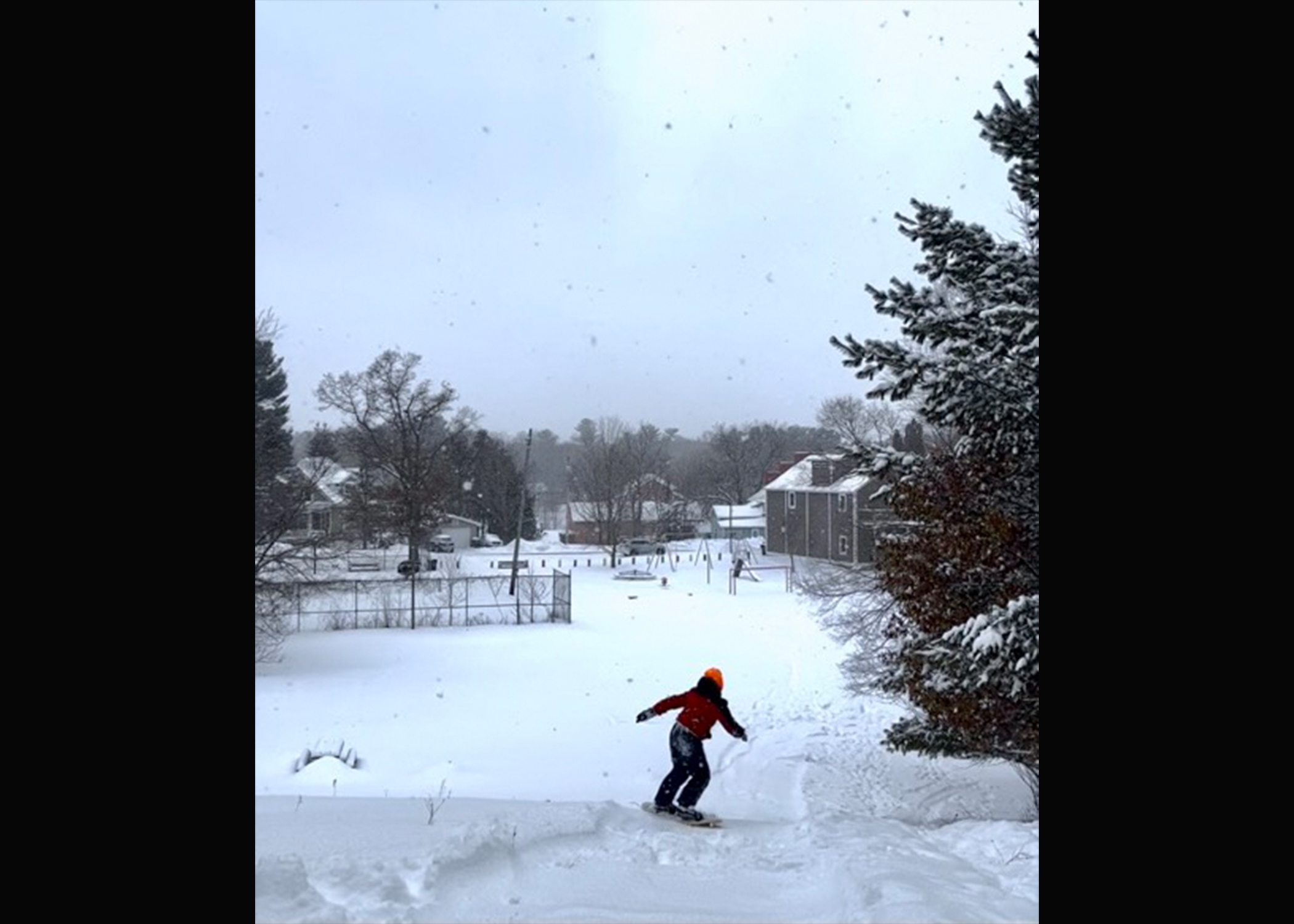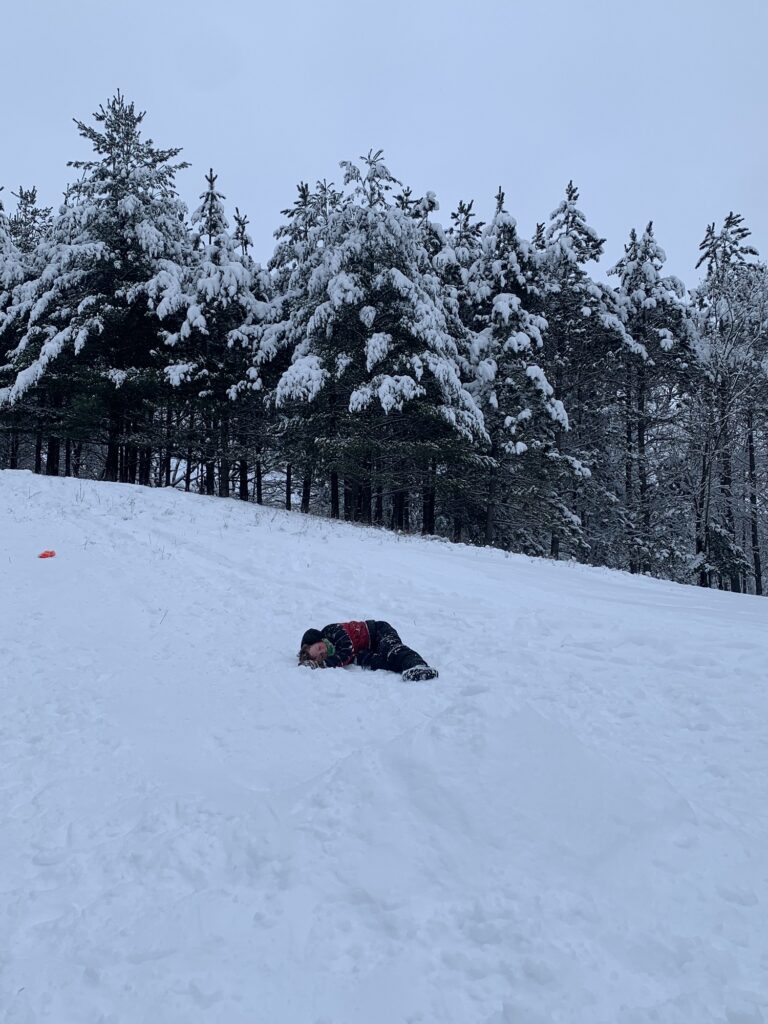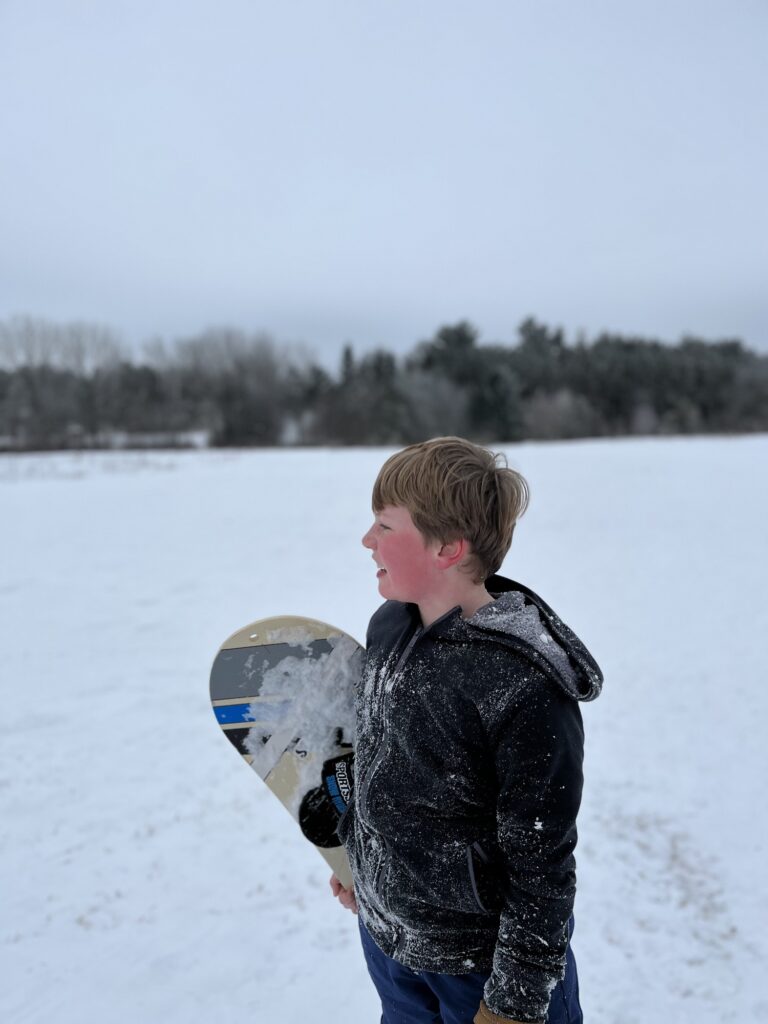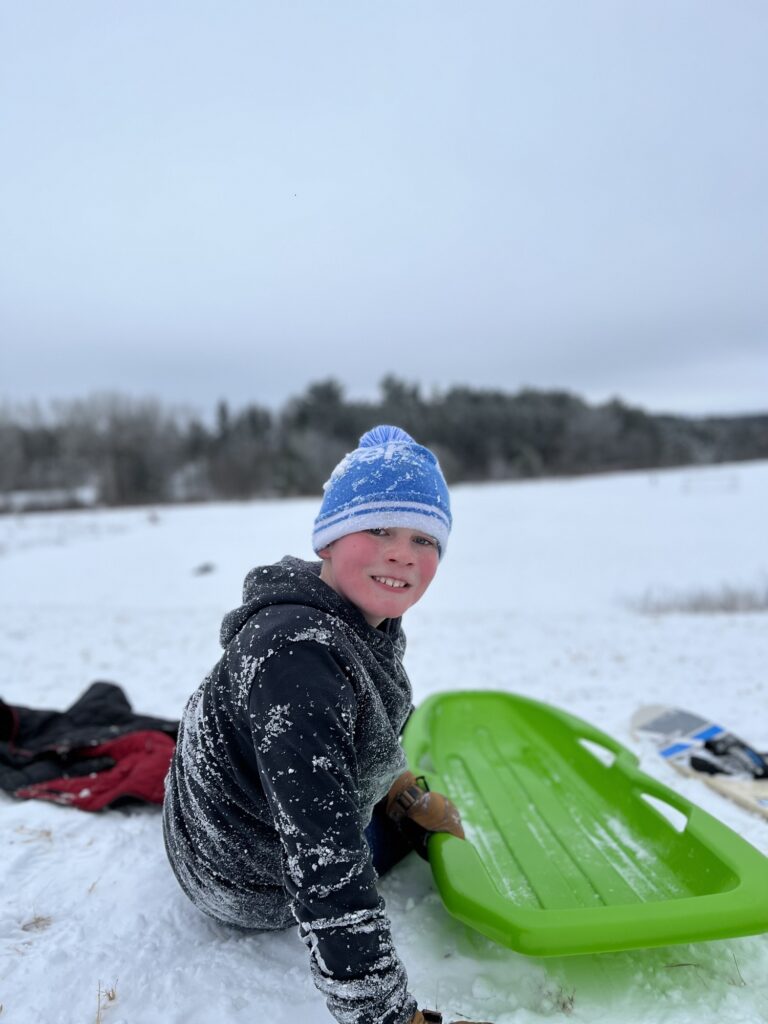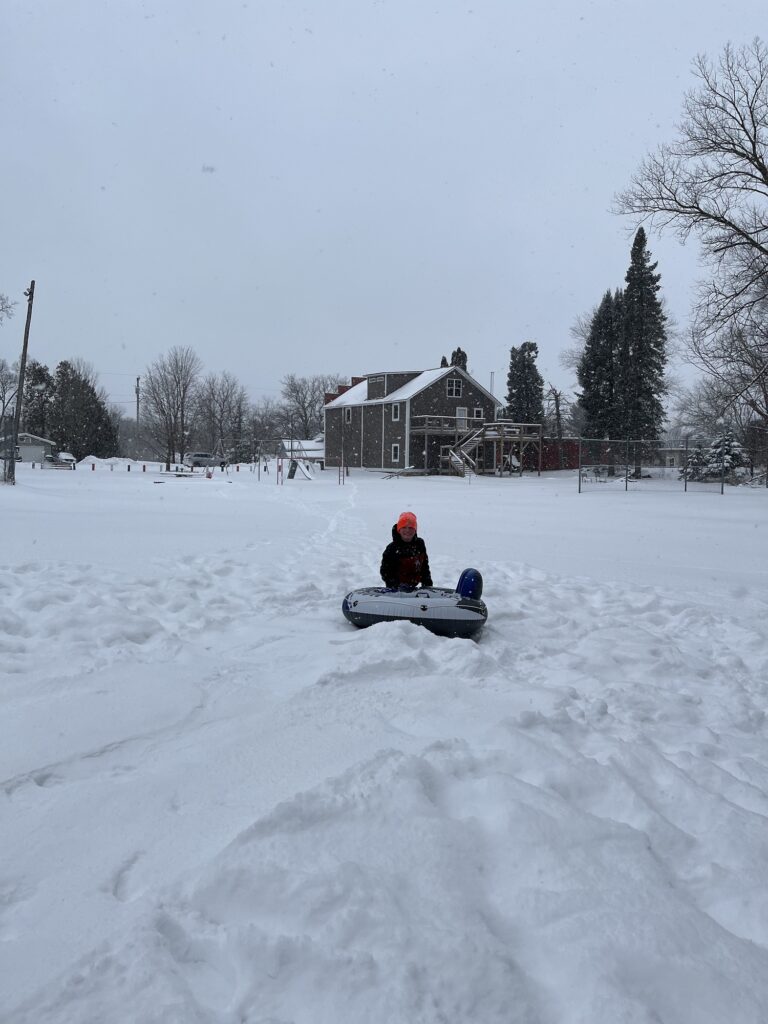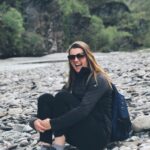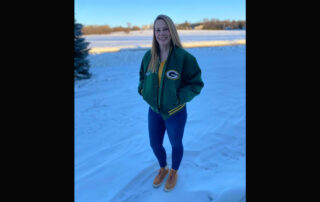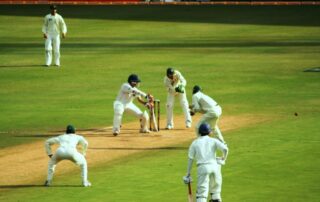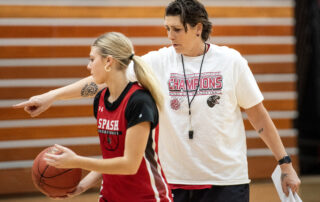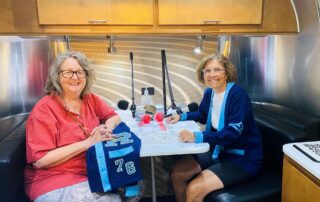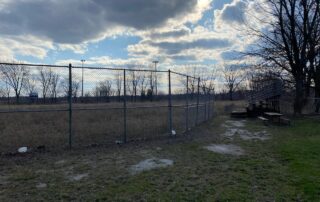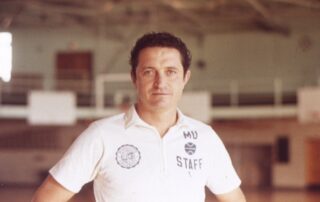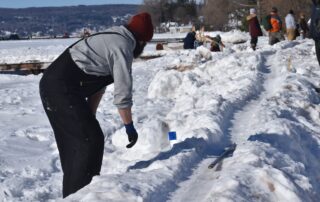The quiet, snowy days of winter have a way of compelling us to reflect on our lives. For writer Jill Sisson Quinn, a sledding excursion in central Wisconsin with her son teaches a bittersweet lesson of growing, and letting go.
==
For a state mostly flattened by a glacier, finding a good sled-hill can be a problem. My son and I can walk through the cornfield behind our house to a gentle slope, or drive to Nelsonville, where a steep hill descends to a refurbished playground. Soon enough, the walkable hill loses its luster, and my son prefers Nelsonville for more thrills. Then, he wants to sled with friends, not me. He’s still too young to just drop off, so I’m often stuck there as the chilly chauffeur where, watching them, I must throw caution to the wind and let kids be kids.
Each time we arrive, my son scans the hill for school-friends. One day, some middle-school boys he doesn’t recognize sit in a circle mid-hill around their snowboards. My son, a second grader, is taller than some of them. We trek up the hill, and one of the boys nods at my son’s snowboard and says in greeting, “What’s your best trick?”
“Jump-turn,” my son replies, without missing a beat. I imagine he’s making this phrase up, and I doubt he can do it because he’s spent only two days practing with the snowboard, a Christmas gift, on a frozen snowdrift in the yard. But he answers with such definitiveness, the older boy seems convinced, and we walk by, having gained entry to use the hill, it seems, having passed some kind of test.
My son would rather watch the older boys than use his board. I sit in the cold snow, feeling like I’m at a party I wasn’t invited to–odd after so many years of that symbiotic relationship one has with infant and toddler-aged children. I’d like to take a walk on the trail in the forest nearby, but opt for a short walk on the road; if I go just a little ways both east and west, I can still keep an eye on things.
As I walk, I notice the boys, my son included, gathering at a picnic table near the playground. After some struggle, they manage to pull it several yards so the top of the table is flush with the lip of a snow ramp they have previously built at the hill’s bottom. My initial thought is to march over and say, “Uh-uh. Put that table back where it was.” After all, I’m the only adult around. Someone’s going to break their neck. Isn’t it my responsibility to put a stop to this?
- Beau Quinn wipes out on the hill in Nelsonville, Wisconsin. (Photo by Jill Sisson Quinn)
- Beau Quinn looks out on the hill with his snowboard in Stockton Park, Wisconsin. (Photo by Jill Sisson Quinn)
But another part of me knows that soon enough I’ll be dropping my son off at this hill and leaving like the parents of these older kids, or he’ll be walking to some sled hill I’ve never seen before from a friends’ house. I won’t always be around, won’t know what’s going on. And isn’t it their responsibility to challenge themselves, to try new things, to know when not to?
I look around half-hoping a window will go up in one of the houses and a parent will start yelling. But the homes are shut tight against the cold. The boys and I seem to be the only people on this frozen planet. I make a quick decision not to say anything, fully aware it may be the wrong one.
I watch the group walk to the top of the hill and get on their boards. At first they glide down and go to the right or left of the ramp, checking things out–except for my son, who continues as spectator. Then one boy goes all the way down the hill, up the ramp, across the table, and lands deftly on his feet. A few others follow. No one wipes out. It’s the most beautiful thing I’ve ever seen: the formulation of an idea, the cooperation to create the challenge, the initial caution, and the pure and easy athleticism of the body when all it is doing is growing and growing and growing.
I think about my son’s entry into this world of “tricks,” of cooperation and competition, of finding his place amongst peers. I feel moored by both his confidence and caution; still, I breathe in a long, slow breath, one I may not exhale for many years.
- Beau Quinn switches between his sled and snowboard on a snowy day in Stockton Park, Wisconsin. (Photo by Jill Sisson Quinn)
- Beau Quinn rides a tube down a hill in Nelsonville, Wisconsin. (Photo by Jill Sisson Quinn)
